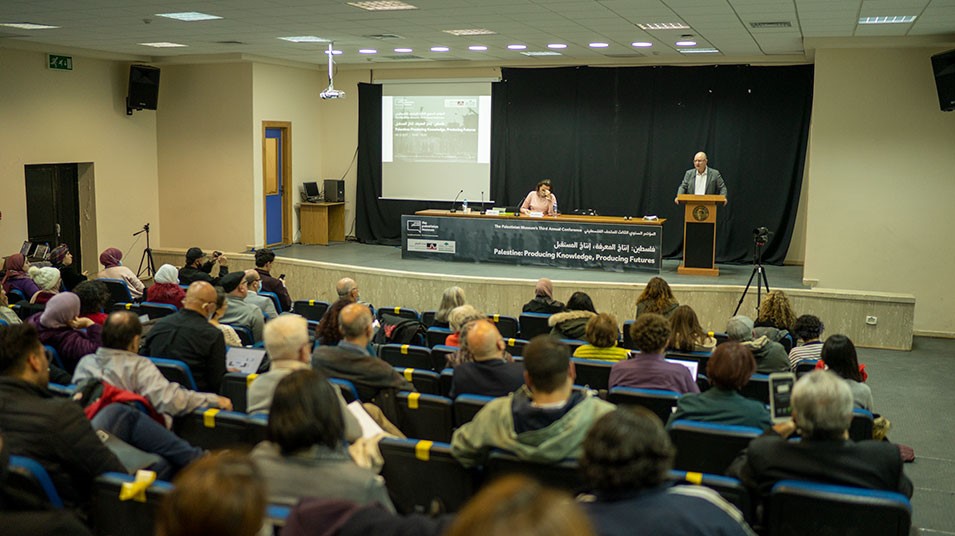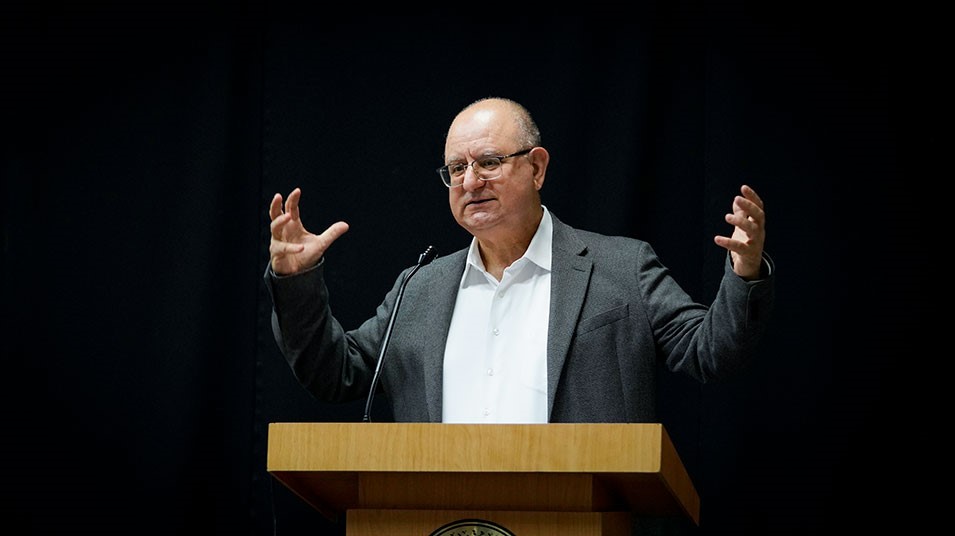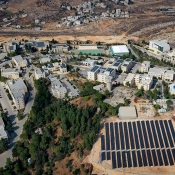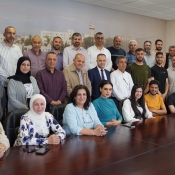Joint conference with Palestine Museum explores new methodological approaches to studying Palestine
Palestinian researchers and scholars explored new directions to critically read and research Palestine in the third annual Palestinian Museum Conference, held in partnership with Birzeit University’s Department of Social and Behavioral Science and Mada al-Carmel — the Arab Center for Applied Social Research, on December 8, 2021.
Entitled “Palestine: Producing Knowledge, Producing Futures,” the conference was hosted at Birzeit University and brought together political and social scientists, historians and anthropologists, who critically discussed research methodologies through which new knowledge about Palestine and Palestinians can be produced and disseminated within the colonial context under the prolonged Israeli occupation.
Dr. Adila Laïdi-Hanieh, director general of the Palestinian Museum, said that the theme of this year’s conference is in line with the museum’s new strategy, which prioritizes researching and archiving Palestine and producing knowledge about the identity, culture and history of Palestinians.
The conference, said Laïdi-Hanieh, builds on the artistic narrative that the museum’s current exhibition, “A People by the Sea: Narratives of the Palestinian Coast,” presents. The exhibition highlights the history of the Palestinian people, from the mid-1700s until the Nakba in 1948, by focusing on the rise and role of Palestinian coastal cities such as Akka and Yaffa.
Discussing the aim of the conference, Laïdi-Hanieh said that it “aims to answer the question on how to produce knowledge; how it can help in producing a discourse that can serve our liberation process.”
In his opening lecture, Dr. Beshara Doumani, president of Birzeit University, stressed the importance of discussing the historical narratives of the future Palestine. Analyzing the historical narratives of and about Palestine, he explained, can help us identify and forge new directions to realize how we want our country to be in the future. He added that historical narratives set our present realities, and it is through these narratives that the future of Palestine can be shaped.
The second session, led by assistant professor at Birzeit University’s Department of Social and Behavioral Science Dr. Lena Meari, focused on the methodologies used to research Palestine. The speakers critically explored the methodologies used in feminist anti-colonial research projects and indigenous studies, and they discussed time, temporality and their implications on the study of Palestine and Palestinians and the research methodologies implemented in such studies.
The third session, led by sociologist Dr. Khaled Furani, examined the political and cultural approaches used in researching settler colonialism in Palestine. The researchers brought into discussion a number of key topics, including the methodologies and tools used to read colonialism from 1948 until 1967; the concept of normalization within settler colonialism in Palestine; and the possible impact of the 2021 May uprising on the erasure of the Green line from the land and the collective consciousness.
The conference concluded with a discussion, led by the Palestinian Museum’s digital archive director Salim Abu Thaher, about emancipatory discourse and cultural practices, highlighting and exploring the themes and narratives of the museum’s current exhibition.








